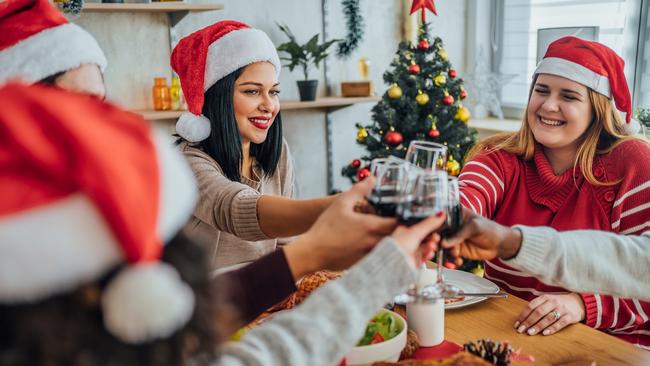Why our neighbours are ahead of family on the Christmas guest list
The traditional family Christmas is changing shape as research finds many people are choosing to celebrate with their neighbours this year instead of relatives.
SmartDaily
Don't miss out on the headlines from SmartDaily. Followed categories will be added to My News.
The traditional family Christmas is changing shape as research finds many people are choosing to celebrate with their neighbours this year instead of family.
The research, commissioned by Steggles, found one in four people plan to spend Christmas Day lunch with their neighbours over relatives.
Clinical psychologist Jaimie Bloch says it’s a reflection of a broadened definition of family that has developed in recent years.
“The definition of family has evolved since the pandemic as we had to seek support from those living close by, including from our neighbours and community,” Bloch says. “We’ve noticed that even with life getting back to normal, individuals are cherishing those newly formed relationships and moments that bring us together.”

The research found 75 per cent of Australians say they’ve grown closer to those living locally and 27 per cent have got to know people living in their street. Sharing food brings 78 per cent of people together with 22 per cent enjoying a shared recipe.
HARD TO TRAVEL
Newtown couple Rohan Johnston, 35, and Nathan Stringer, 33, have usually travelled to their respective families on the Mid North Coast of NSW for Christmas celebrations. This year, they invited their families to travel to Newtown to share in their community Christmas celebration.
“We want to try something different because we want to enjoy our house, neighbours and friends,” Johnston says. “It’s not that we don’t want to spend time with family, and invited them to join us because we’re planning to set up tables in (a park). It’s not always easy travelling to see them and we have our neighbours nearby.”
The pandemic can partly explain the shift. They returned from London to live in Newtown when Covid-19 hit and would often chat over fences and meet in the park during lockdowns. Their neighbour group includes a single mother, empty nesters and a young family.

“We really like cooking for friends and most of our socialising is through doing dinners at home. Our neighbours – within the space of four or five streets – are our main friend group,” he says. “We live busy lives so that physical ease of contact helps. It’s hard to get across town in Sydney. Plus, we have a lot of laughs, play board games, have great communication and the only time we’ve had a complaint was when someone complained about the music I was playing – not the volume but the type of music. That wasn’t going to change.”
Steggles marketing manager Shawn Stevens says the changing nature of celebrations is also shifting consumer demand for products.
“We’re finding convenience is the pattern in food choices, with people looking for different ways to feed these types of get-togethers,” he says. “The chicken roast is part of the fabric of a get together and it’s not just parents and siblings getting together. It’s a wide group of people we call family.”

Psychologist Liv Downing says the broadening sense of family is one of the gifts from lockdowns, explaining that hardship and vulnerability are known to bring people together. “While I think spending time with family is important to heal childhood wounds, grow and become adults, it’s wonderful to be more inclusive and we’ve rediscovered our community in the most wonderful way,’’ Downing says.
AN AUSSIE CHRISTMAS
• For those spending Christmas with people other than their families, most (62 per cent) say they’ll be eating with friends, followed by work colleagues (30 per cent) and friends from community clubs or sports groups (15 per cent).
• Geography and distance are the main challenge for connecting with family with one in two (54 per cent) of Australians surveyed living more than an hour’s drive away and 14 per cent living in a different state.
• 78 per cent of Australians know the names of their neighbours and 27 per cent have invited them around for food in the past year.
Source: Steggles research
Originally published as Why our neighbours are ahead of family on the Christmas guest list




